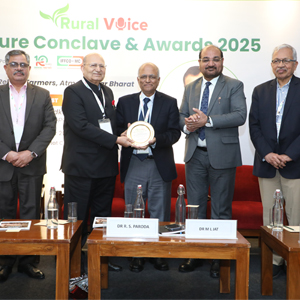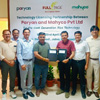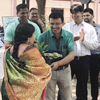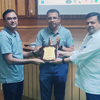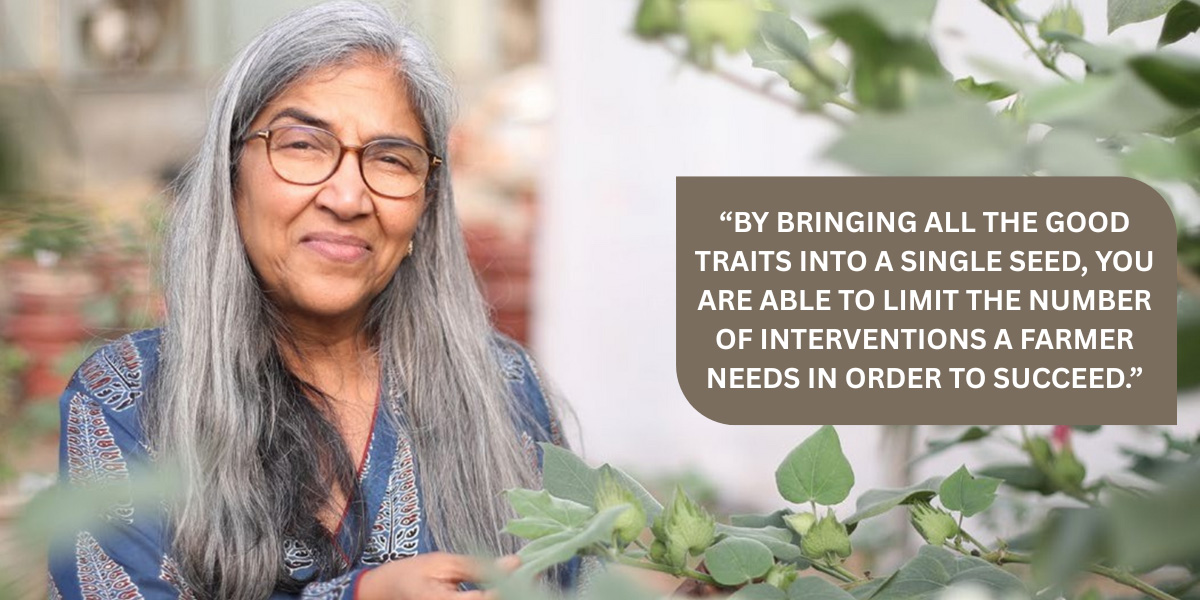
Better Seeds, Better Futures
For Gladys Clement, a cotton farmer along the western shores of Lake Malawi, recurring cycles of drought and floods, coupled with ongoing disease and pests, have long conspired to keep her livelihood precarious and largely unpredictable. For years, she and her family have battled the insects that ravaged their small plot of land—and so when she heard about a new cotton seed that kept insidious pests at bay, she decided to take a chance, albeit a cautious one.
In the first year, she bought just two small packets of hybrid cotton seeds, manufactured by an Indian company nearly 8,000 kilometers away. Each seed, around the size of a grain of corn, was more expensive than what she was used to paying, and so she did a kind of experiment, planting them in a small corner of the family plot. She left them to germinate and grow.
"The first crop was greener, tall and robust," she recalled on a recent afternoon. "It had more bolls"—the rounded pod that holds the cotton fibers—"the branching was very good, I had much fewer pests and very good yields." In the first year alone, Clement more than doubled her cotton crop without the use of pesticides, which helped the family purchase pigs, as well as windows for their home.
The seeds, produced by Mahyco International, a subsidiary of Mahyco Private Limited, are the results of years of scientific research and plant technology pioneered on a quiet, verdant 100-acre campus in Jalna in the Indian state of Maharashtra. Mahyco, as the family-owned company is known, is one of the country's leading seed producers, with a self-proclaimed mission to improve the lives of farmers through science. Amidst laboratories filled with petri dishes and tissue cultures, dozens of greenhouses where agronomists and plant breeders test varying genetic combinations, and fields monitored by drones that calculate yields and productivity, scientists are pioneering hybrid seeds. Their work is helping smallholders like Clement in the face of soaring temperatures, unpredictable rainfall, and relentless pest invasions.
"Farmers everywhere, regardless of scale, want two things—to reduce their costs and increase their incomes—and science can empower them to achieve that," said Rajendra Barwale, Mahyco's chairman.
Seed pioneers in India
Founded in 1964 by the late Dr. B. R. Barwale, a leading figure in the Indian seed industry, Mahyco has been a pioneer in improved seeds. As Shirish Barwale, the company's managing director and member of the family's third generation explained, seeds are convenient vehicles for technology transfer: Unlike more complex farming methods—which can require nuanced training— seeds are relatively easy to adopt and deliver. "That's the beauty: all of the technology is in the seed itself," he said. In 2020, IFC, with support from the GAFSP, invested in Mahyco's subsidiary, Mahyco International, to fund the company's cotton and rice seed business in Sub-Saharan Africa, Bangladesh and Southeast Asia. The hybrid seeds, widely available in India, are expected to increase yields, boost climate resilience and improve rural incomes in countries that need access to improved agricultural inputs. The US$10 million equity investment from GAFSP, alongside an IFC US$10 million equity investment, underscores IFC's commitment to strengthening agriculture and is part of its wider work to link small-scale farmers to resources and markets.
IFC has invested in several Indian companies since 2020 to support their entry and operations in Africa, with volume over US$500 million, as part of a larger strategy to support and promote cooperation and investment along the India-Africa corridor. South-South investment and transfer of know-how from India to countries like Bangladesh, Sub-Saharan Africa and Southeast Asia remains pivotal in addressing global challenges and building a more solid foundation for sustainable development. IFC is one of the leading global investors of agribusiness in the African continent. This experience and long-standing track record was invaluable to Mahyco, as this was the company's first investment in the region.
"Strengthening agricultural value chains is critical not only for food security but also for building resilient rural economies and creating jobs," said Carsten Mueller, IFC's Regional Industry Director for Manufacturing, Agribusiness and Services, Asia. "At IFC, we are committed to investing in solutions that help farmers increase productivity, improve incomes, and expand employment opportunities. Our partnership with Mahyco demonstrates how South-South cooperation can accelerate progress by bringing high- quality agricultural innovations to farmers across Africa and beyond."
Supporting African farmers through seed innovation
Cotton is one of the most important cash crops in Sub-Saharan Africa for both farmers and governments and is a crucial source of income for millions of smallholder families across the continent. Africa produces approximately seven percent of the world's cotton and though soil and weather conditions in several Sub-Saharan African countries are ideal for cotton cultivation, low-quality seeds, basic farming practices, and heavy pest infestation have long kept yields low.
Unpredictable weather patterns and intense heat further stress budding plants, while many diseases and new pests thrive in sweltering environments. West Africa loses about 25 percent to 30 percent of its cotton production due to pests annually, according to the International Cotton Researchers Association. Mahyco's pest-resistant seeds— which on average double yields for farmers, according to trial data available from the farmers in Africa— are therefore instrumental for many users. Watson Fanuel, a smallholder in southern Malawi, now sprays his cotton fields just once, compared to the eight sprays per season with the seeds he used previously. "The crop was heavily attacked by pests [in the past] whereas it is very much under control with Mahyco seeds," he said. "There is a clear difference." The seeds he uses also mature early and produce long and strong cotton fibers that fetch higher prices at his local ginner—all of which has helped him purchase cattle, repair his home, and pay secondary school fees for his teenage daughter.
The science behind hybrid seeds
Mahyco's seed development often takes years and plant breeding helps the company boost desirable traits, said Usha Barwale Zehr, Mahyco's Director and Chief Technology Officer. "By bringing all the good traits into a single seed, you are able to limit the number of interventions a farmer needs in order to succeed," she said.
She said that the company designs seeds to meet the challenges of modern farming, including less arable land, water with high salinity, extreme heat and drought, and high levels of pest infestation. The seeds, Barwale Zehr said, are also designed to meet local needs—and so the cotton seed the company produces and markets in India will be different, for example, than the one Clement, Fanuel, and other farmers in Malawi use.
Mahyco International is active in 20 countries, including Bangladesh, Malawi, Tanzania, and Vietnam. The company's work in Sub-Saharan Africa is still unfolding and they say blended finance support has given them the time required to build their supply chain, despite setbacks including COVID-19. Their hybrid cotton seeds, which have been rolled out and are commercially available in Kenya, Malawi, Nigeria and South Africa, are currently in the approval process in Burkina Faso and Zimbabwe.
Most of the company's seeds for use in Sub- Saharan Africa are produced in India, and the company has multiple breeding stations and testing centers across the continent. Mahyco is working to boost its local supply chain to include 120,000 smallholders who will multiply the seeds on their farms.
"Farmers in Africa have arable land, high- quality soil, and a favorable climate and can become leaders in the world's cotton production," Shirish Barwale, the company's managing director, said. "There's a real opportunity to introduce high-quality seed technology. One small input can make such a difference."

